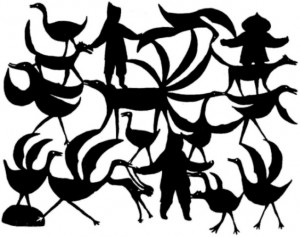 My work deals with complex, interacting ecological and social systems, and seeks to influence the trajectories of those systems, nudging them toward greater resilience through strategic actions. This work is grounded in the recognition that biological diversity – the diversity of species, the genes they contain, and the ecosystems they make up – is the foundation of all sustainable human development, now, and in the future.
My work deals with complex, interacting ecological and social systems, and seeks to influence the trajectories of those systems, nudging them toward greater resilience through strategic actions. This work is grounded in the recognition that biological diversity – the diversity of species, the genes they contain, and the ecosystems they make up – is the foundation of all sustainable human development, now, and in the future.
Without biodiversity the life-support systems of the Earth’s biosphere will falter and eventually fail. Biodiversity is the source of all of the ecosystem products, ecosystem services, and non-material benefits upon which human societies depend. Conserving biodiversity and sustainably managing natural resources isn’t a luxury, it’s a necessity. Without it we can’t have sustainable economies, human health and wellbeing, or stable, peaceful governments. But how do we motivate individuals, communities, and organizations to take the actions that are obviously in our best, long-term interest?
That is the challenge that my ecological consulting and writing seek to address. Behavior is the interface between human social systems and ecosystems. One way or the other, we must learn how to influence behavior and move toward societies that live harmoniously with nature.
I have always loved the way the art of indigenous cultures reflects the understanding that ecosystems and human social systems are inextricably interwoven. An Innuit print from Cape Dorset, in the Canadian Arctic, is, for me, a symbol of the systems view underlying all my work.
This same idea is represented in traditional Jalq’a weaving from the Bolivian Andes.
A systems view underlies and guides the work of Bruce Byers Consulting. Complex systems have interactions that create properties that the individual components don’t exhibit by themselves. These “emergent” properties often make it difficult to predict the how the system will react to a stress or a change. Systems science is holistic, not reductionist. A common way of stating this is a quotation from Aristotle: “The whole is greater than the sum of its parts.” One of the great founders of American conservation, John Muir, put it this way: “When we try to pick out anything by itself, we find it hitched to everything else in the Universe.”




